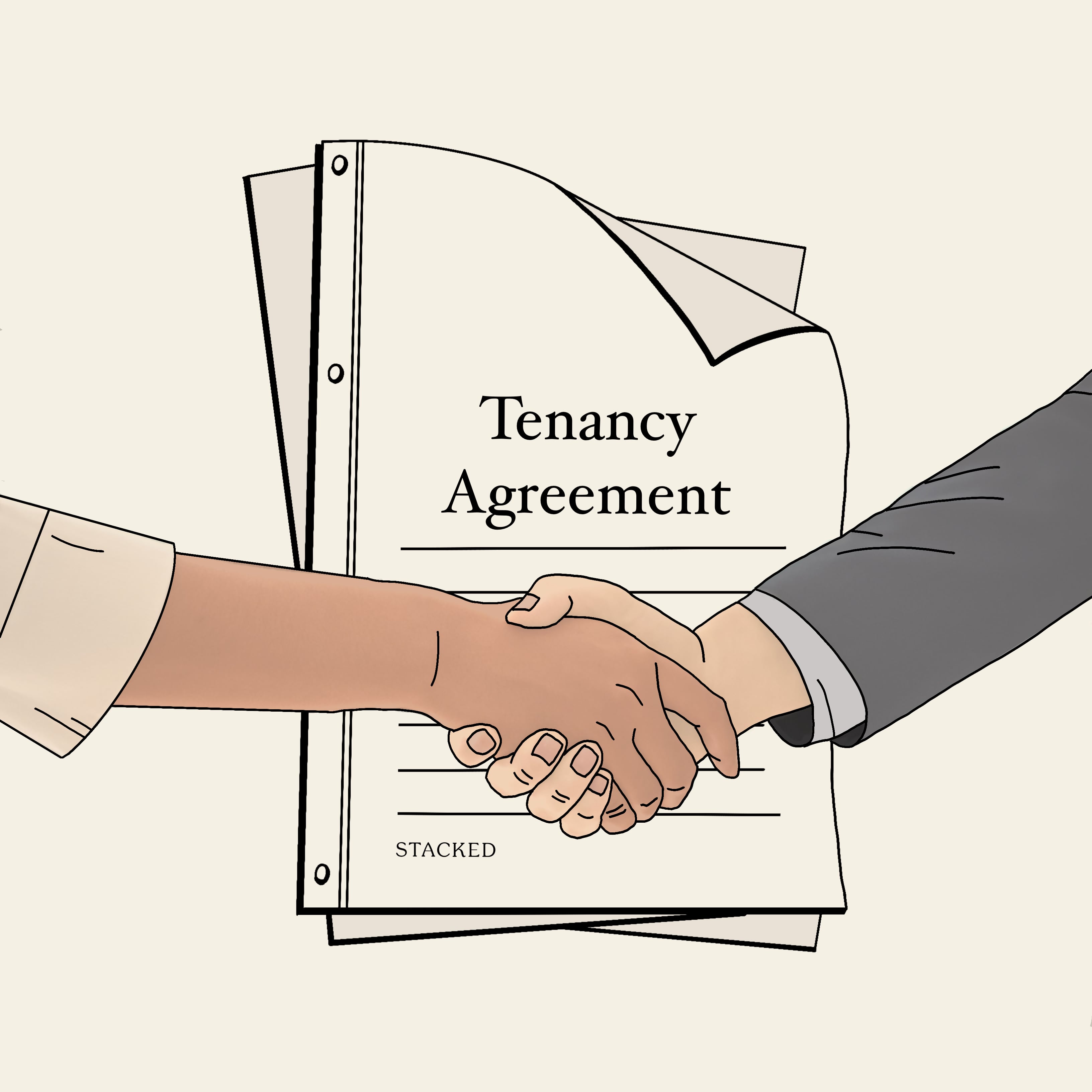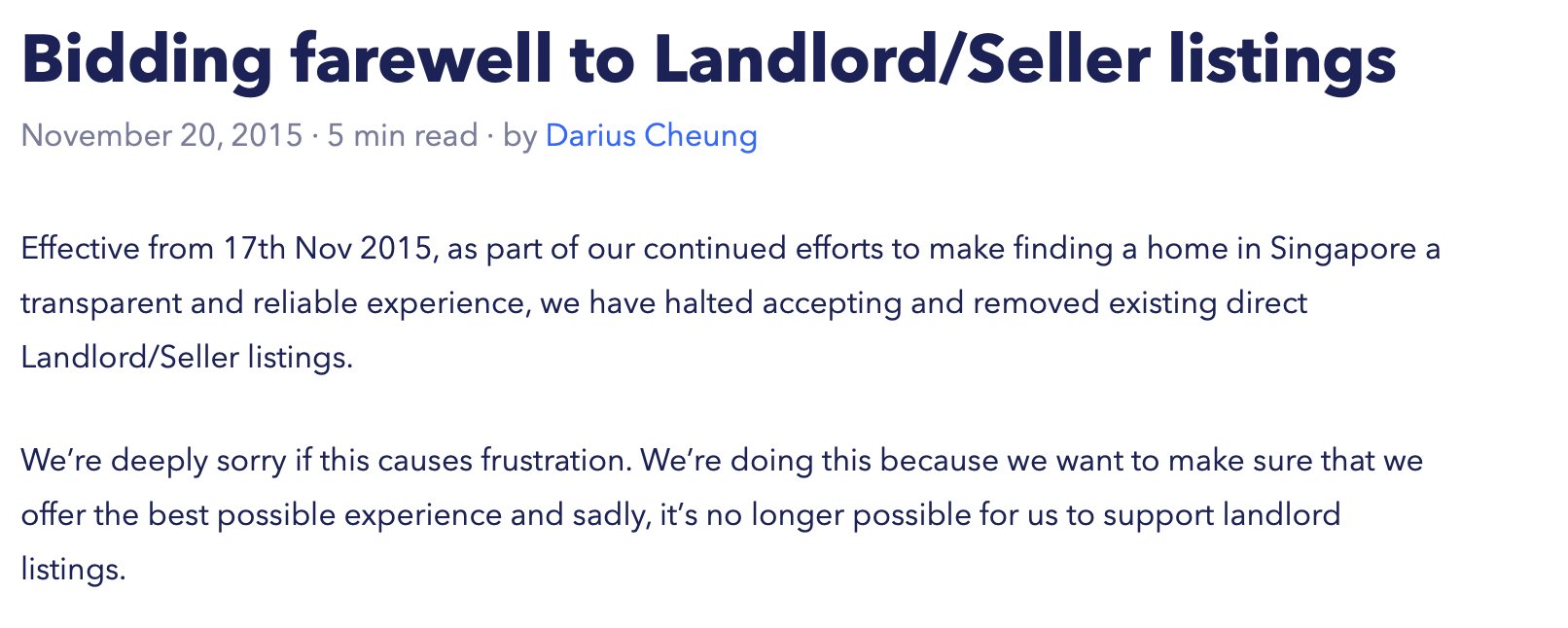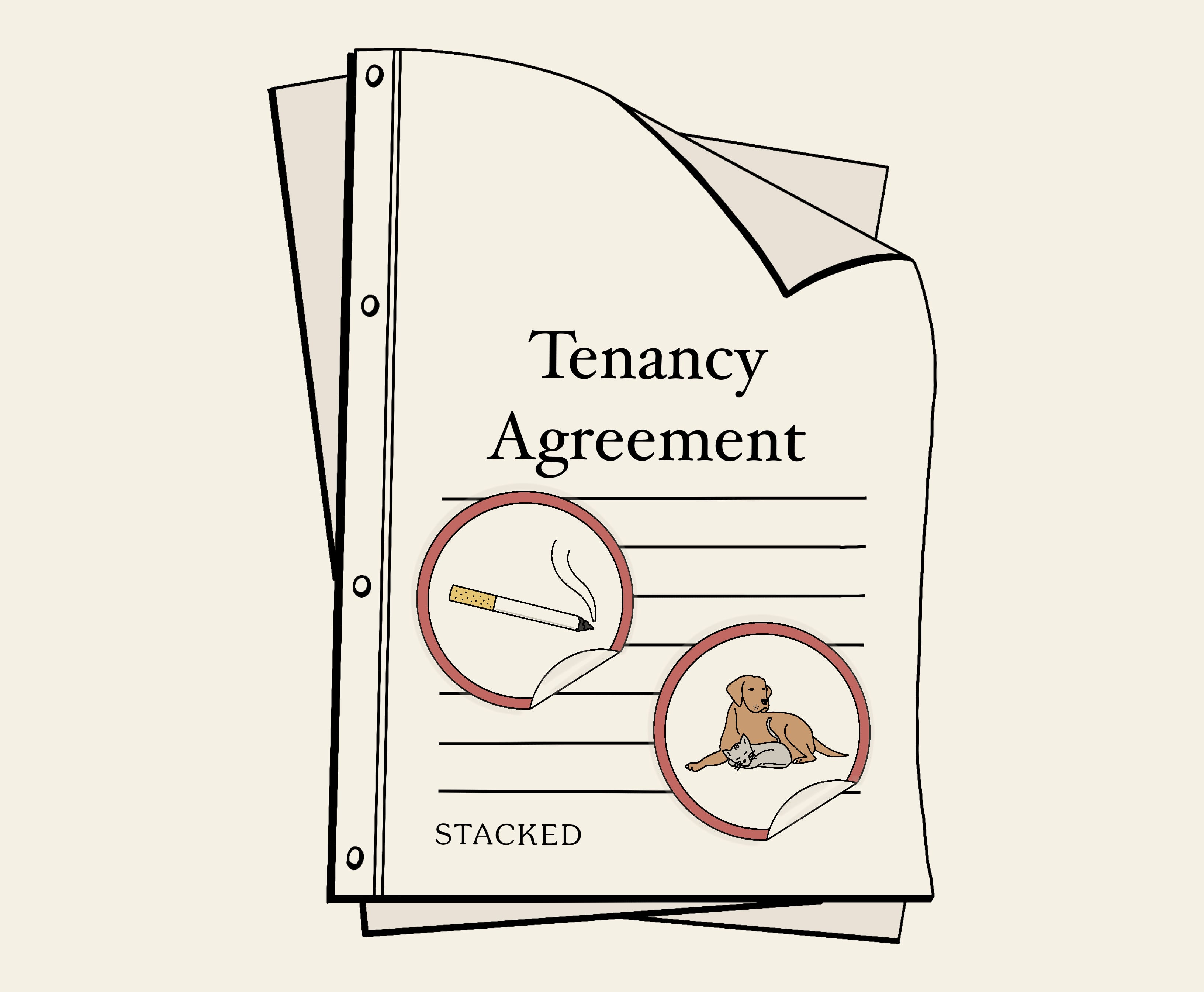I Tried Renting Out My Own Home In Singapore: Here’s Why I Would Never Do It Again
October 12, 2022

A common complaint is that property agents charge too much for handling “simple” rental deals; and it has to be said the rising GST rate doesn’t help either. As one landlord found out however, finding your own tenants can devolve into so much of a headache, you may be saving money by just getting an agent. Our landlord, R, explains what the experience is like:
So many readers write in because they're unsure what to do next, and don't know who to trust.
If this sounds familiar, we offer structured 1-to-1 consultations where we walk through your finances, goals, and market options objectively.
No obligation. Just clarity.
Learn more here.
The decision to try DIY rental
R owned a four-bedder unit in a condo in the East, near the Singapore University of Technology & Design (SUTD). However, both R and his wife had decided to move into a home left by their in-laws, which was closer to his wife’s place of work.
R decided to monetise their condo unit by renting it out.
“I found out the usual service fees were one months’ rent for one year of lease, which was okay – but I didn’t like that I would pay again whenever the lease was renewed, even if it’s the same tenant. On top of that I would also have to pay GST.”
Since he ran his own business at the time, R also thought his flexible work schedule would easily allow him to look for tenants. He also felt that, with the university and proximity to Changi airport/Business City, it wouldn’t be too difficult to find ready tenants.

Things started out rocky
The first problem R encountered was lack of access, to major property portals. Sites such as PropertyGuru and 99.co require users to be licensed agents – this is to ensure listings are genuine.
(A check shows that 99.co did previous accept listings from sellers and landlords directly, but this policy was ended in 2015).

This left R with using smaller sites, and with old-school methods like sticking notices at bus stops.
(Do note that it’s not always legal to place such notices at bus stops; a fact that R was not aware of at the time. You need to check that free notice boards are available. DIY landlords can check the locations here. As for the pillars and other parts of the bus stop, you’re not actually allowed to stick your listings there).
Most property agents are aware of what happens next, and have screening methods to avoid time-wasting/nuisance calls. But R simply received all the calls with no filter, most people would naturally not want to let any potential tenant slip through the cracks.
“Most of the calls were nonsense, or idle inquiries at best. There were people calling to offer to loan me money, scam callers, and one weird lady who called at 3.00 am and wanted to move in right away.
Among the serious calls, at least half were agents asking if I wanted their services; some others were landlords in the same condo, trying to scout out the rates. Out of maybe a dozen calls, one would be a serious inquiry.”
Things got worse once the viewings started
While R worked on flexible hours, he soon found the viewings to be a massive time sink. Many landlords looking to save on the commission tend to overlook how much time it can take to conduct viewings. Plus, not everyone arrives on time, and you’d spend a lot of time waiting for tenants (not to mention, sudden no shows). If you have a full-time job, it’s just not very feasible.
It was also especially difficult to filter out serious prospective tenants, from those who had other interests.
“In one case I had a viewer that I later saw in another part of the condo – eventually I realised she was also a landlord with another unit in my same block. She was probably just sizing up the competition.”
The various viewings racked up transport costs, enough that the total amount spent on taxi fares making the decision of doing it himself seem increasingly silly. R also admits that there’s some emotional effect, from hearing strangers gab about your home.
“I guess you have to be prepared when people openly discuss your so-called terrible tastes,” he says, “some are polite, some are openly talking about how your dining room looks like an operating theatre because it’s so bright and white; or how your wall colour is nauseous.”
Perhaps the worst case, R says, is when a couple were quite blatantly trying to offload their ageing parent on his unit.
“The couple brought along their dad, who was 90. He was quiet all the way, and I don’t think he really understood what was going on.
They kept telling me he would live in the unit alone and he would clean up by himself, he didn’t need help… but obviously I could see he needed live-in help, and they were just trying to offload and abandon their dad.”
More from Stacked
Can You Still Afford A Mature-estate HDB Flat In 2020?
It’s BTO launch time, and once again your eyes are being drawn to places like Bidadari and Bishan. But a…
R also found he couldn’t answer some important questions
R thought he knew what was essential; but soon realised he’d underestimated the complexity of the questions.
“They would ask me questions like: if my student visa ends partway through the lease and next year I start looking for a job, can I still sign a lease for two years?
Or in another case, it was a foreigner who wanted to ask if the diplomatic clause applies, as they are the sole proprietor of the business they set up.
There was a lot of anxiety, because what if I gave the wrong information? And that’s when it sunk in, that the rental business is easy in concept, but tough in execution.”
At the time, there was no standardised Tenancy Agreement (TA)
The lack of a standardised TA is often said to favour the landlord – but this assumes the landlord has a good grasp of what they’re doing. At the time R rented out his property, the lack of standardisation meant he had to cobble together a TA, out of existing samples.

As an amateur, there were several key points he missed.
“One issue I missed was how much the tenant would be liable for, in certain forms of maintenance. For most TAs, the tenant is liable for up to the first $150, while the rest is covered by the landlord. I didn’t know this at the time, so I just made myself fully liable,
I also didn’t know that, in most TAs, tenants are the ones tasked with air-con servicing. So that’s an added burden I took onto myself.”
Landlords today do have a template TA they can use, which is from CEA. This spells out most of the key concerns; but in R’s time, he mainly had to use what he’d found in other TAs.
(Note that even with the template TA, the tenants may request something different – you may want to speak with a realtor or lawyer, before acceding to such variations).
Answering multiple texts and negotiating with several parties at once
R soon found himself swamped in a sea of text messages and emails; and it got worse when it came to negotiating. He says his desktop soon had several dozen folders, all dedicated to conversations that “usually went nowhere”.
He estimates wasting about two to three hours of each day, just responding to messages; and this doesn’t include the time taken to conduct any viewings.
“It got to a point where it interfered with my work, and started costing me revenue because of time away. Every time I was done answering a text or an email, two or three more would pop up. But don’t take it to mean there’s a lot of willing tenants, since most of the conversations lead nowhere.”
R estimates that about a tenth of all the communications were actually productive.
In the end, R admits getting an agent was worth the price
After several months, R admits he gave in and just decided to get a property agent.
Within two weeks, the agent had secured a two-year lease, at just over $4,000 per month. R had been seeking $3,400 per month.
“Granted, the $8,560* fee was quite painful – but it’s two years for which I don’t need to worry as much. And I tabulate my hourly earnings, it’s probably less than the amount I lost trying to find a tenant by myself.”
R advises that:
“Even if you’re a die-hard believer in getting your own tenants, I would say get an agent to help you at least the first few times; observe how the paperwork and process is done, and ask all your questions along the way. Subsequently, if you want to try a DIY route, you’ll be better prepared.
But after my experience, I think getting your own tenants may be for those who are pure landlords, who are ready to treat their property rental as their full-time job.”
*Two months’ rent + GST of seven per cent
For more on the Singapore private property market, and home buyer and investor stories, follow us on Stacked. You can also check out reviews of new and resale projects alike.
At Stacked, we like to look beyond the headlines and surface-level numbers, and focus on how things play out in the real world.
If you’d like to discuss how this applies to your own circumstances, you can reach out for a one-to-one consultation here.
And if you simply have a question or want to share a thought, feel free to write to us at stories@stackedhomes.com — we read every message.
Ryan J. Ong
A seasoned content strategist with over 17 years in the real estate and financial journalism sectors, Ryan has built a reputation for transforming complex industry jargon into accessible knowledge. With a track record of writing and editing for leading financial platforms and publications, Ryan's expertise has been recognised across various media outlets. His role as a former content editor for 99.co and a co-host for CNA 938's Open House programme underscores his commitment to providing valuable insights into the property market.Need help with a property decision?
Speak to our team →Read next from Homeowner Stories

Homeowner Stories We Could Walk Away With $460,000 In Cash From Our EC. Here’s Why We Didn’t Upgrade.

Homeowner Stories What I Only Learned After My First Year Of Homeownership In Singapore

Homeowner Stories I Gave My Parents My Condo and Moved Into Their HDB — Here’s Why It Made Sense.

Homeowner Stories “I Thought I Could Wait for a Better New Launch Condo” How One Buyer’s Fear Ended Up Costing Him $358K
Latest Posts

Singapore Property News REDAS-NUS Talent Programme Unveiled to Attract More to Join Real Estate Industry

Singapore Property News Three Very Different Singapore Properties Just Hit The Market — And One Is A $1B En Bloc

On The Market Here Are Hard-To-Find 3-Bedroom Condos Under $1.5M With Unblocked Landed Estate Views



































11 Comments
I thought the standard commission is 1 month rental for a lease of 2 years?
Precisely. And you dont have to pay the agent upon renewal, you can always ask to remove that clause from TA.
Yes. Common practice for 2 years rental is 1 month for service fees.
This is exactly what people say when you try to sell your car directly. But it’s mostly fear mongering in that case.You set yourself up to be lowballed by the car dealer bidding sites.
stacked homes have a number of property agents working in their midst too.
which clearly explains why this article is drumming up unnecessary fear to dissuade ppl from renting out their properties on their own.